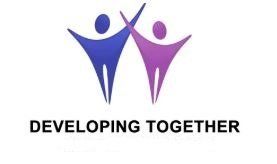"Our business is about providing services and support for your people to benefit your business!"
Workplace Mediation
Workplace Mediation
Unresolved conflict doesn't just affect your productivity, but also your staff's well-being, which is why workplace mediation is so important. At Developing Together, we work with all parties involved to establish the underlying issue and reach a mutually acceptable resolution before the issue escalates any further. We've seen first-hand the difference effective mediation can make and are able to resolve over 90% of our disputes after only one day. Based in Staines-upon-Thames, we work with businesses across the UK to help their employees move forward. For impartial advice, get in touch
with us today.
What is mediation?
Mediation is an effective resolution process used when a working relationship has broken down. It is not a legal process and the mediator is not there to say who’s right or wrong but to help both parties resolve conflict and move forward.
Does it work?
The first step is getting people talking. Disputes often reach this stage as neither party is prepared to back down and have dug their heels in. By encouraging dialogue, members of staff become less defensive as they feel they're being listened to and begin to work towards a resolution they can both agree on. Mediation is voluntary, completely confidential and can save everyone involved the stress and cost of formal action. Over 90% of disputes are usually resolved within 1 day of workplace mediation.
What's involved?
- Statements
- Information gathering
- Identify the problem
- Negotiate
- Resolution
At Developing Together, we'll request an overview of the issue along with any other pertinent information either participant would like to include. We can arrange a time and venue for the meeting. This is normally off site in a neutral setting, although we can conduct sessions virtually. Once an agreement has been reached, documentation can be drawn up for both parties to sign.
Cases which are Regularly & Successfully Mediated
- Conflict and disagreements between employees and within teams.
- Conflict between senior managers and decision makers.
- Conflicts arising from change and the management of change.
- Allegations of bullying, harassment, oppression, discrimination and other inappropriate behaviours.
- Conflicts arising within, or between, various stakeholder groups.
- Conflicts arising from the reintegration of employees after disciplinary action, a period of sickness or following suspension.
- Employment disputes including claims of unfair dismissal (including constructive dismissal), equal pay, discrimination, redundancy pay, terms and conditions, and flexible working.
Early intervention works
There are a number of benefits to mediation:
- Less formal
- Confidential
- Reduces admin
- Avoid expensive legal proceedings
- Repairs working relationships
- Reduces time, energy and cost of managing the conflict
© 2024. The content on this website is owned by us and our licensors. Do not copy any content (including images) without our consent.
